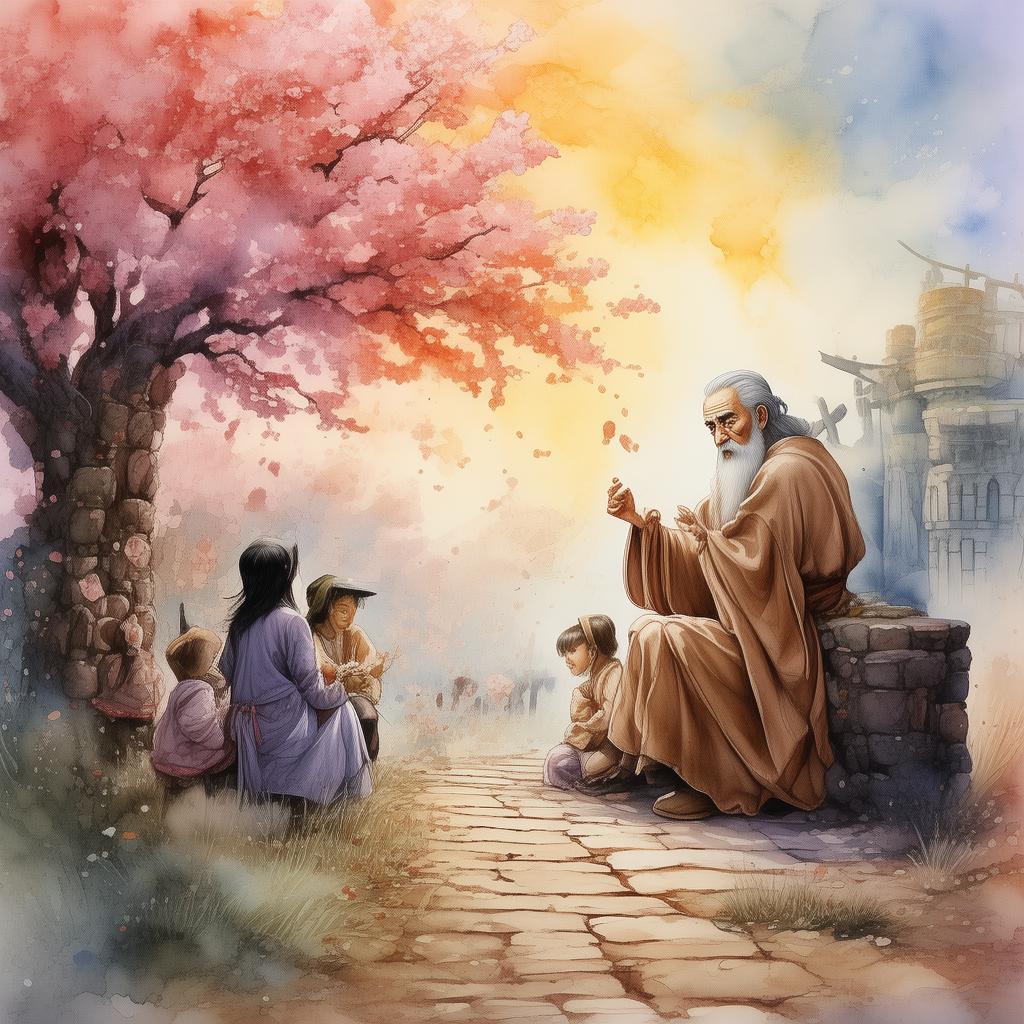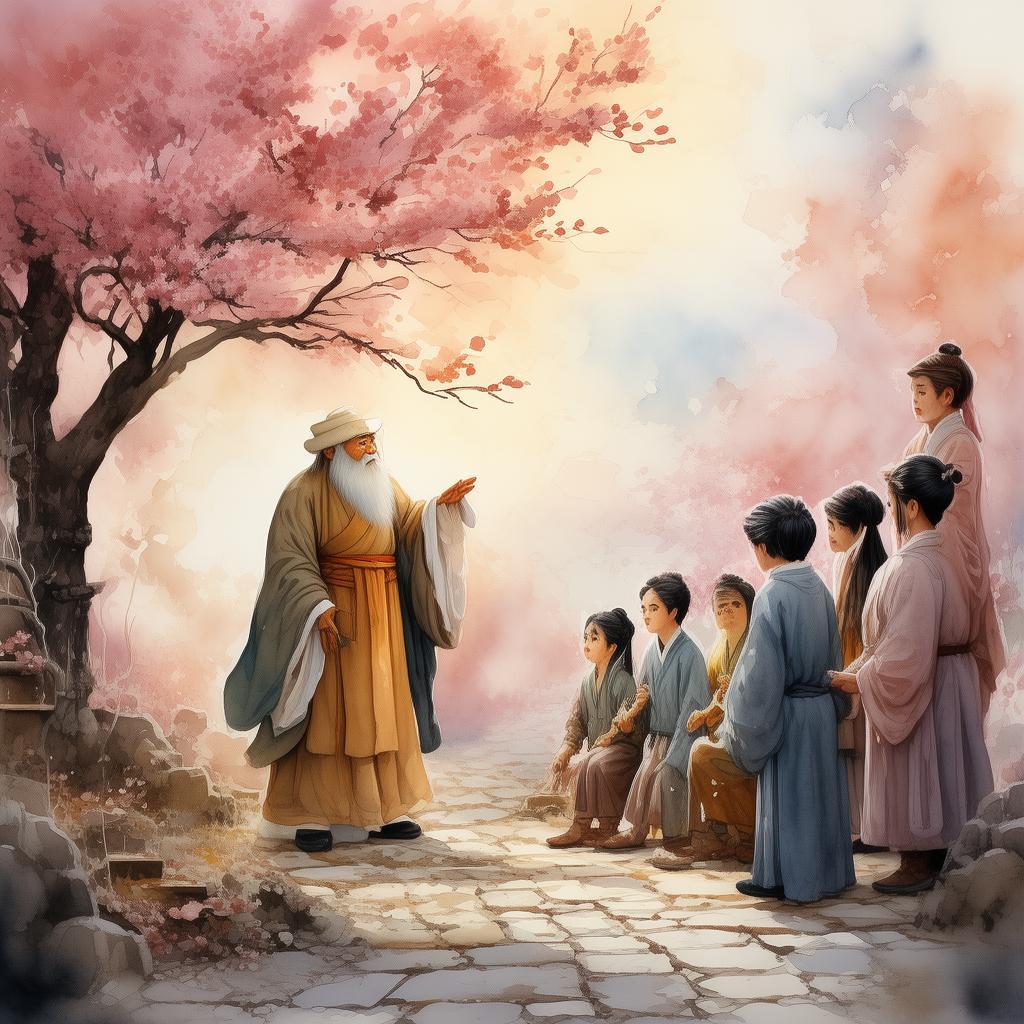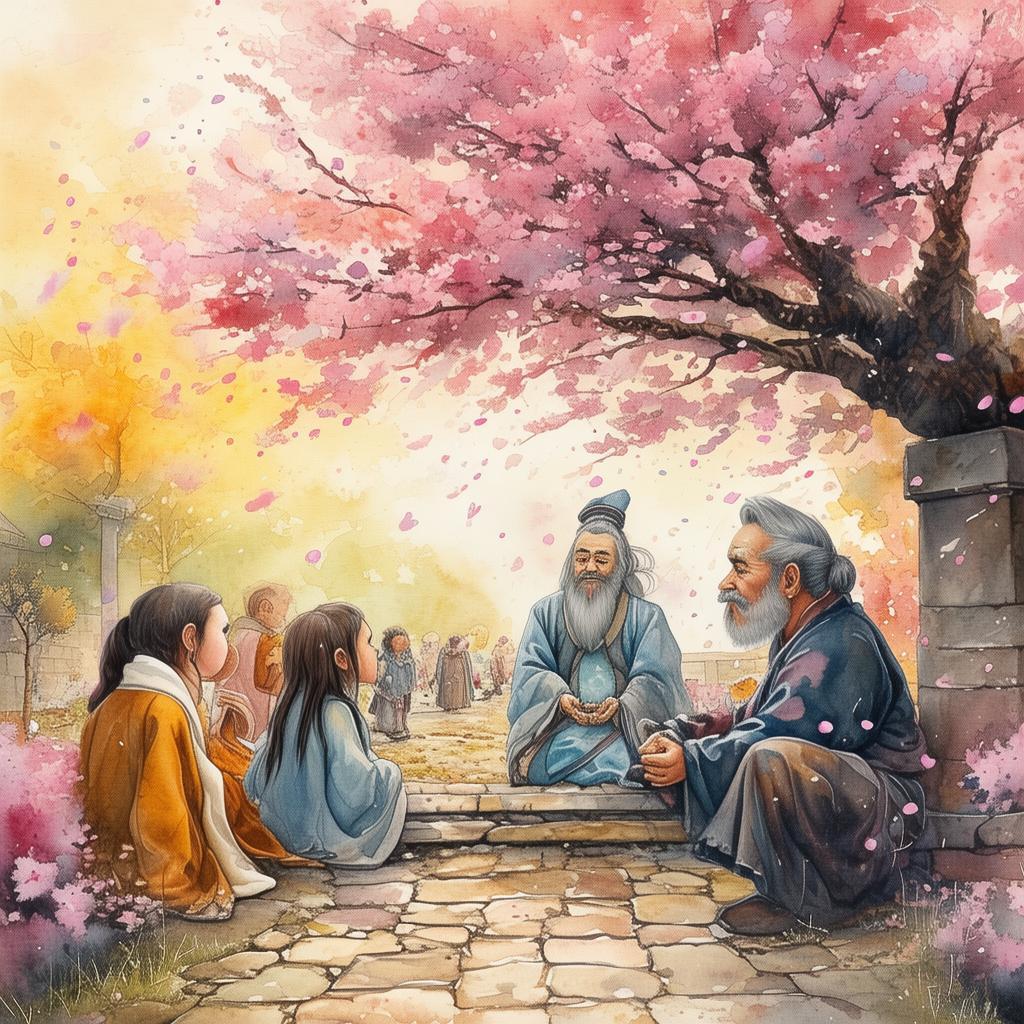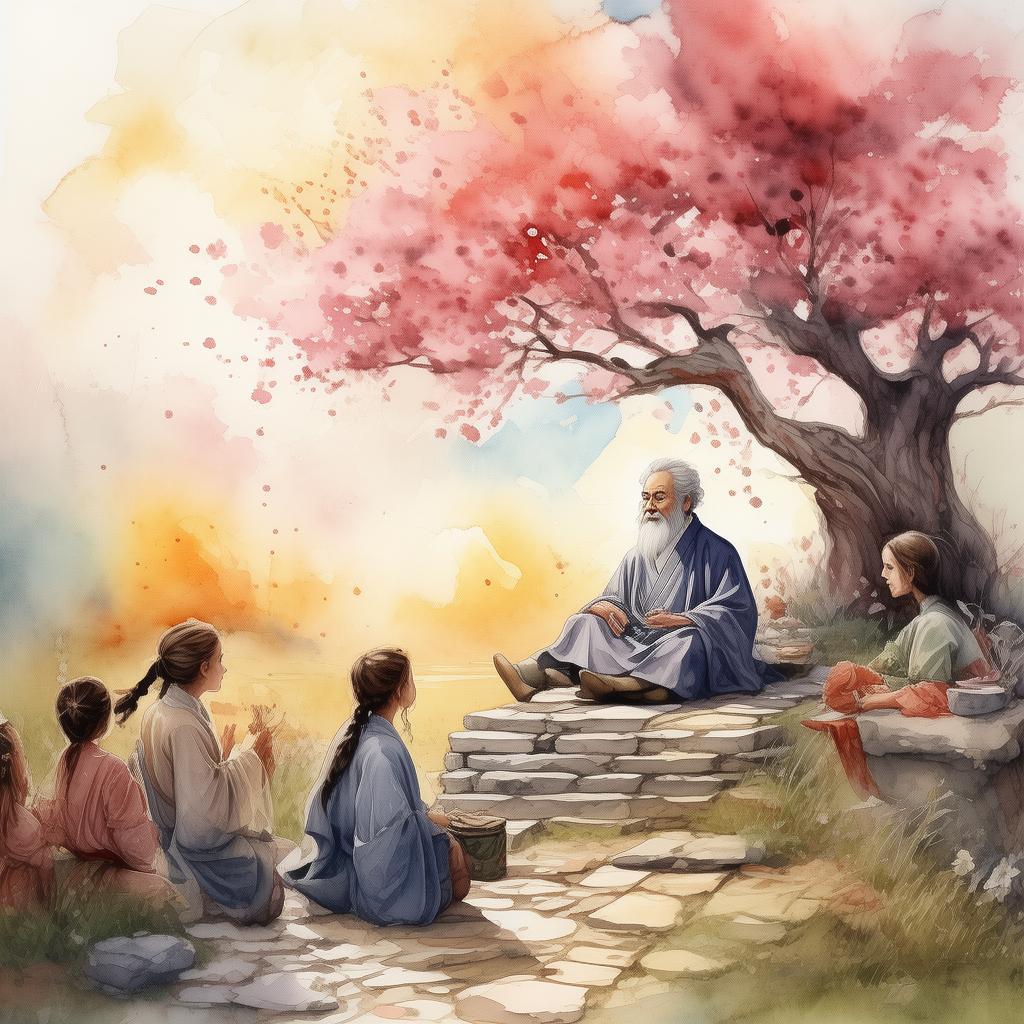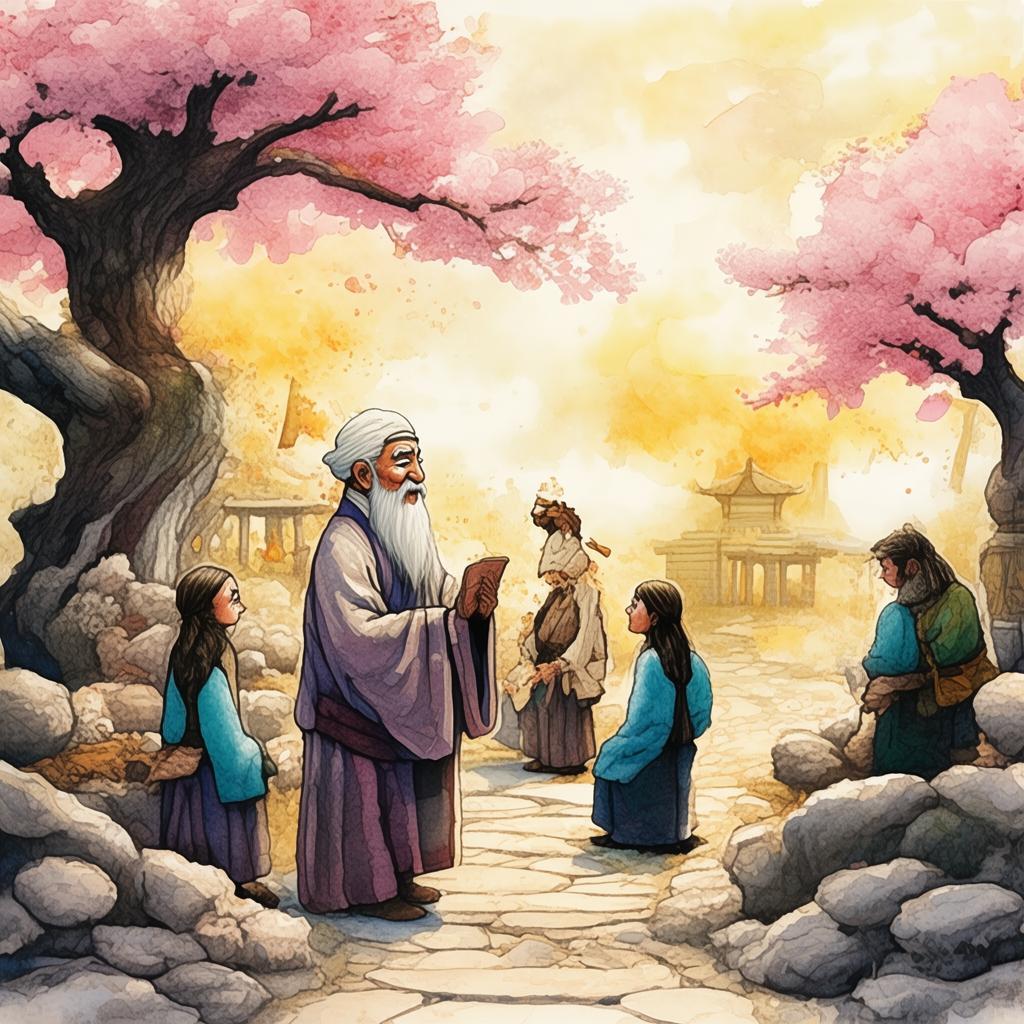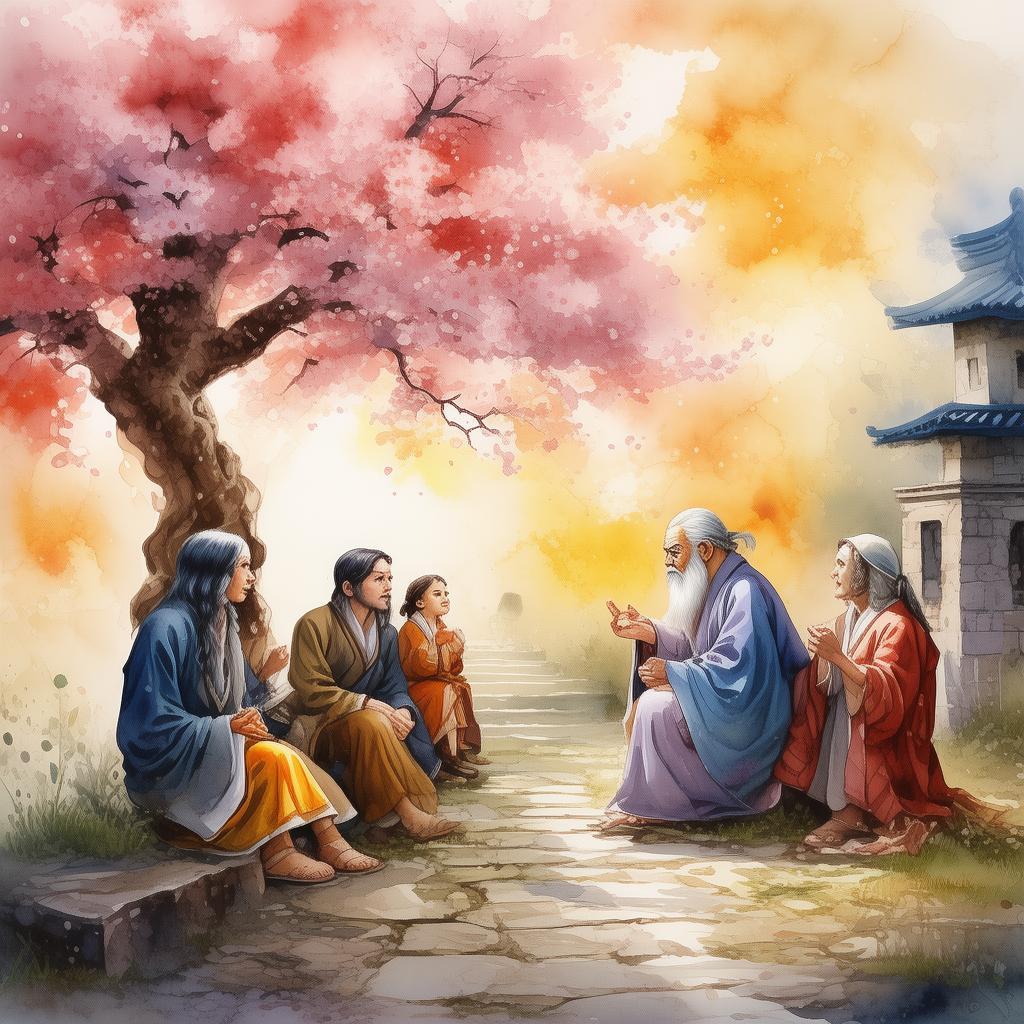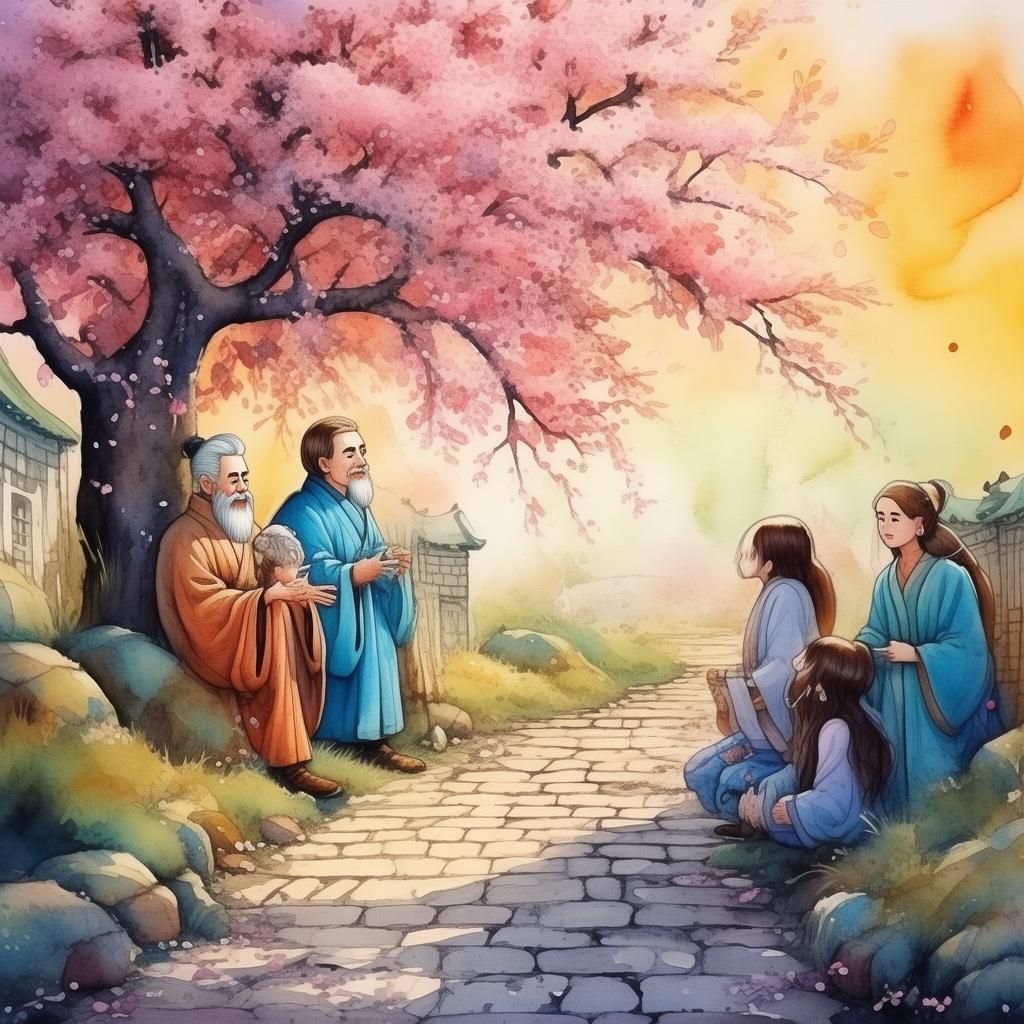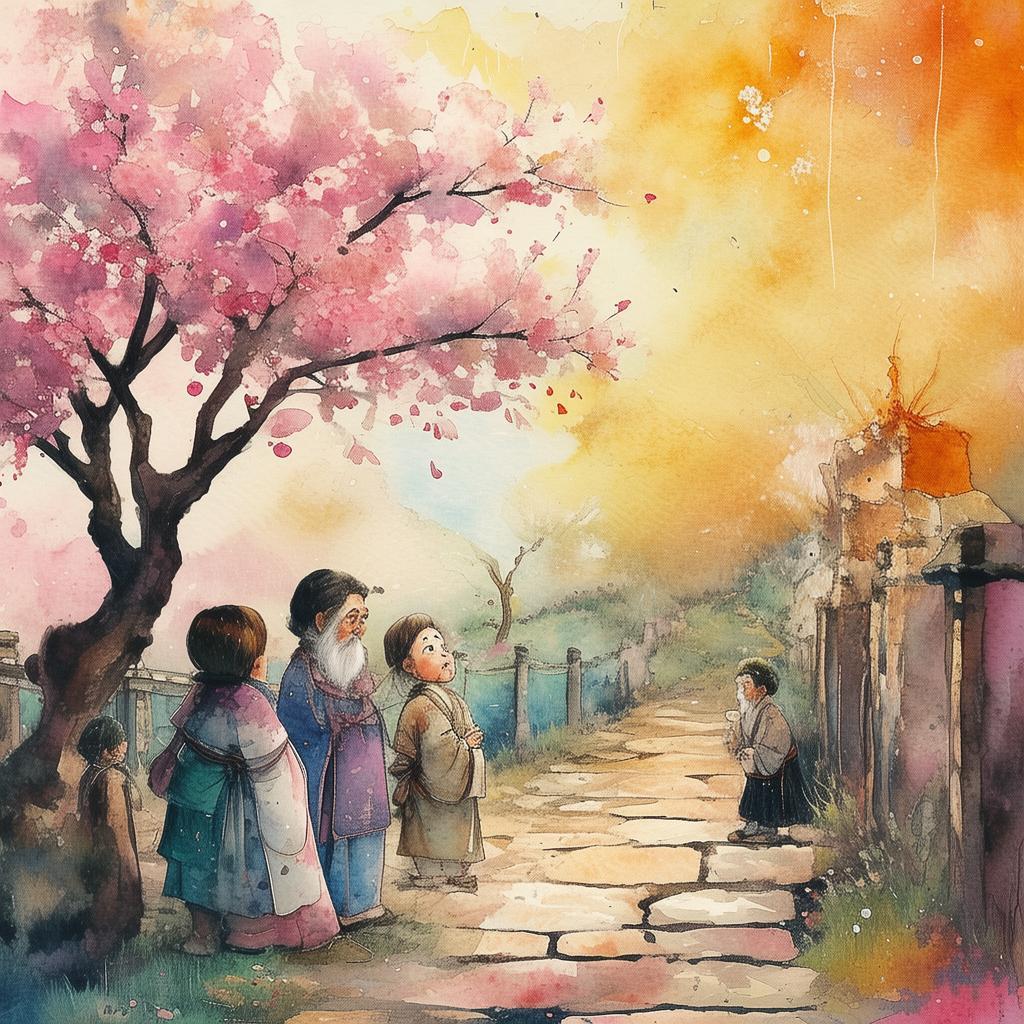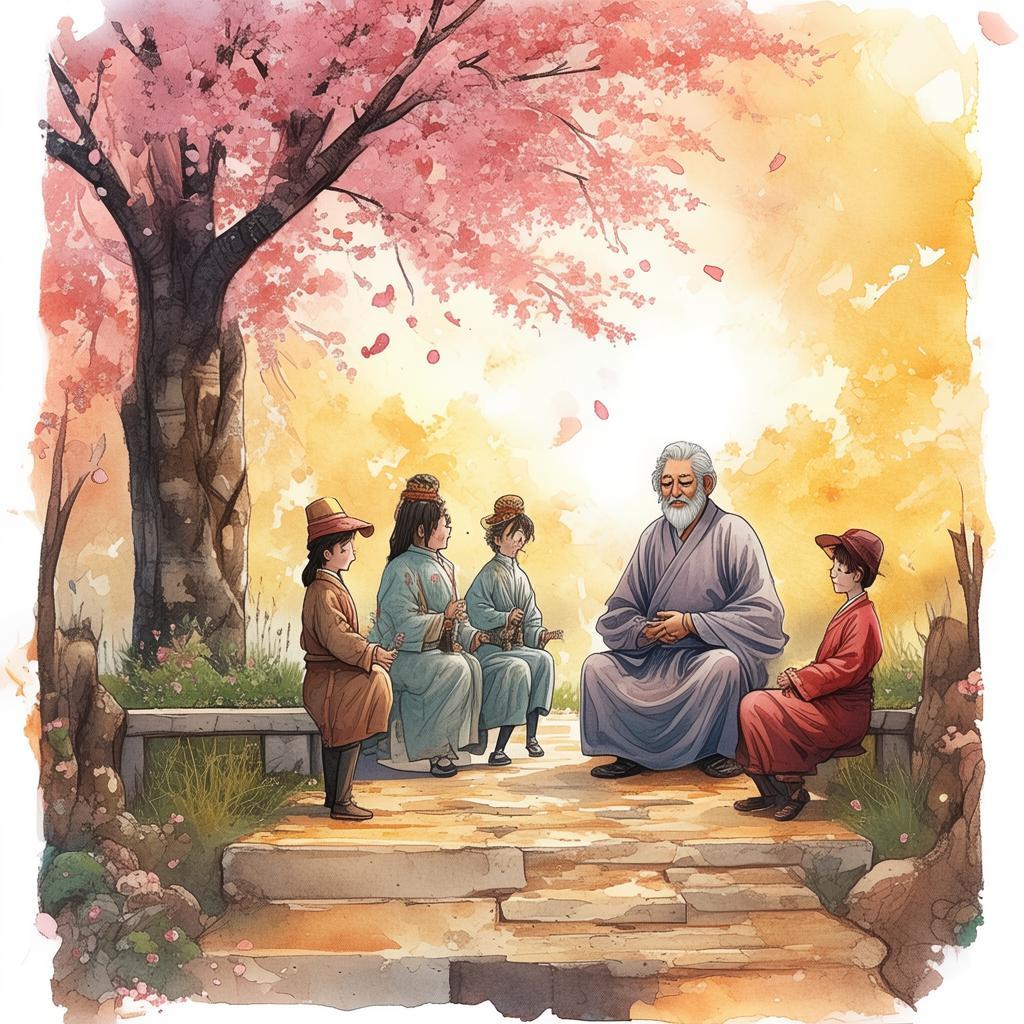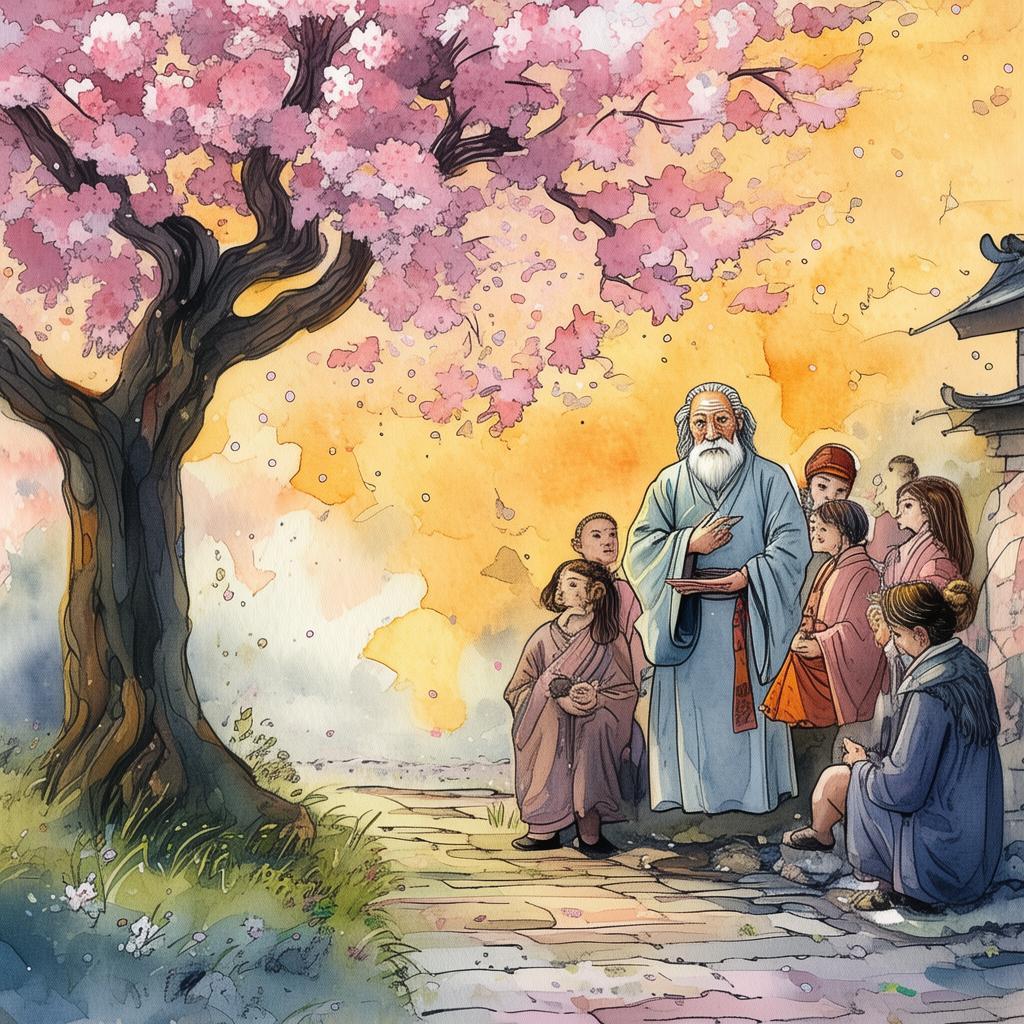The Melody of the Nightingale: A Star's Rhythmical Revolt
In the heart of a vibrant and bustling city, nestled between towering skyscrapers and a tranquil river, stood a grand opera house. This was the stage where the most revered musicians of the land performed, their names etched into the annals of musical history. The opera house was a sanctuary for those who adored the symphony of sound that echoed through its grand halls.
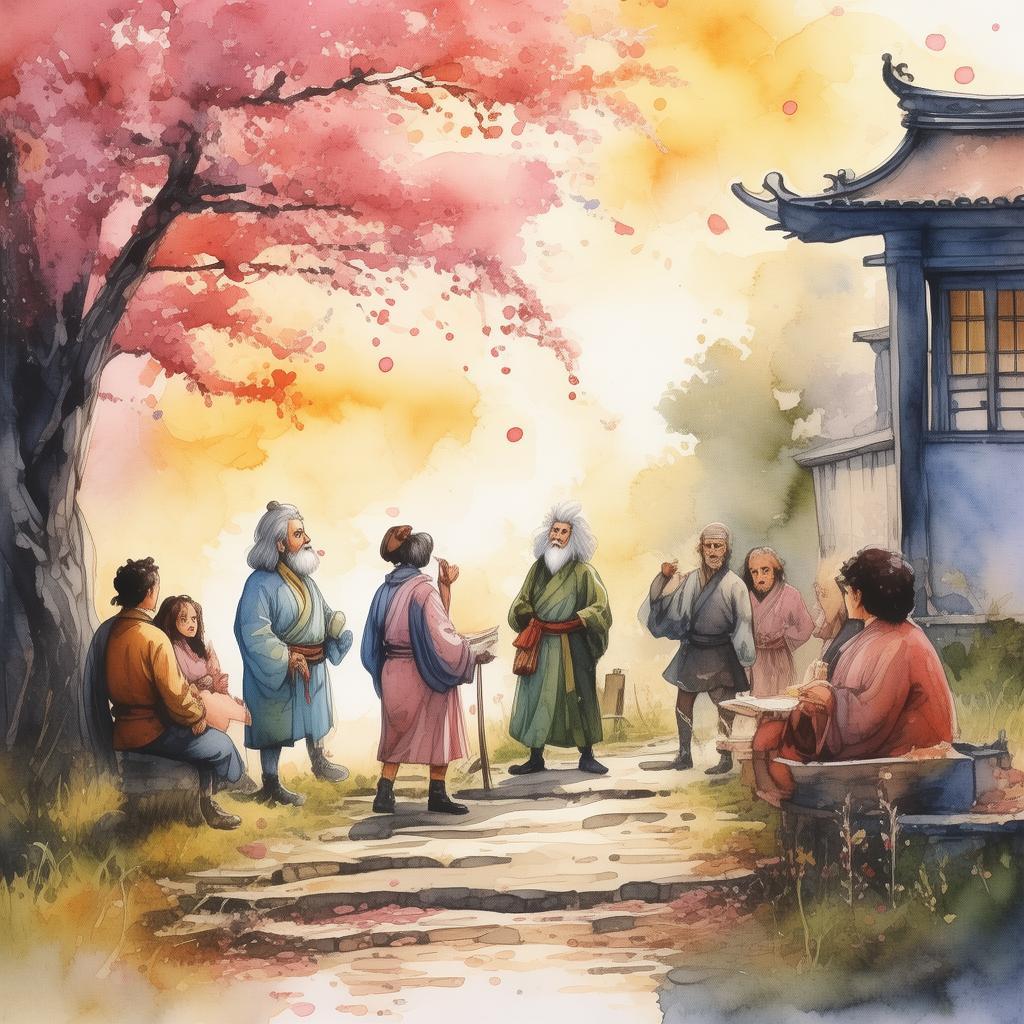
Amidst the grandeur of this musical palace, there was a young nightingale named Lyra, a creature of exquisite beauty and voice. Unlike the other nightingales that soared through the night sky, Lyra was destined for a life of performance. Her voice was pure, her melodies enchanting, and she had been nurtured from an early age to become the next musical sensation.
Lyra was raised by the most famous conductor in the city, Maestro Aria. Maestro Aria was a maestro not only of music but also of the spotlight, and he saw in Lyra the perfect vessel to carry on his legacy. Yet, Lyra had a secret desire—to break free from the confines of his control and to create her own music, her own rhythm.
One fateful evening, a rival emerged. A young and ambitious violinist named Eos had caught the attention of Maestro Aria and was quickly ascending to fame. Eos was the embodiment of discipline and precision, and her violin was the instrument of choice for the most sophisticated of pieces. Her talent was undeniable, and she was quickly becoming the talk of the town.
As Eos's popularity soared, Maestro Aria began to compare Lyra's talent with Eos's, turning the rivalry into a public spectacle. The opera house was now a stage not only for their performances but for a fierce competition for the title of the city's greatest musical genius.
The rivalry became a battle of egos, with both Eos and Lyra striving to prove their superiority. Eos's violin resonated with a crisp and clear tone, while Lyra's voice soared with a soulful, expressive beauty. Each performance was a duel, each note a weapon, and each audience member a judge.
Yet, despite the competition, Lyra felt a growing discontentment. She was not just a singer, but a creator. She yearned to compose her own music, to craft her own story. She knew that Maestro Aria's vision for her was a cage, a limitation on her creativity.
One evening, as the moonlight bathed the city in a silver glow, Lyra found herself alone in the opera house. The grand hall was silent, save for the echo of her own thoughts. It was then that she decided to take a stand. She would compose her own piece, a piece that would reflect her inner struggle and her yearning for freedom.
She began to sing, her voice weaving through the empty space. It was not a traditional opera, nor was it a sonata. It was a blend of every genre she had ever heard, every style she had ever admired. It was her rebellion, her Rhythmical Revolt.
The next day, the city was abuzz with the news. Lyra had composed a new piece, one that was to be performed at the next opera house gala. Maestro Aria was furious, but Lyra stood firm. She had made a choice, and she was ready to face the consequences.
The gala arrived, and the opera house was filled to the brim with eager spectators. The air was thick with anticipation. Eos, Maestro Aria's protege, took the stage first, her violin a beacon of precision and discipline. The audience was captivated, but there was an undercurrent of something else. They were waiting for Lyra, the nightingale with the forbidden dreams.
Finally, Lyra stepped onto the stage. The silence was palpable, a hush that fell over the room. She began to sing, her voice a tapestry of every emotion she had ever felt. Her melodies were unpredictable, her rhythms bold. The audience was captivated, not just by the music, but by the courage it took to defy tradition.
As the final note resonated through the hall, there was a moment of stunned silence. Then, the audience erupted into applause. They had witnessed something extraordinary—a nightingale not just singing, but living her own song.
Maestro Aria was beside himself with anger, but Lyra's success was undeniable. The city was abuzz with the tale of the nightingale's rebellion, and the opera house was no longer just a place of performance but a sanctuary for those who dared to dream beyond the confines of their expected roles.
In the end, Lyra's Rhythmical Revolt was more than just a piece of music. It was a testament to the power of creativity, the courage to break free from societal expectations, and the belief that everyone has the right to compose their own melody in life.
As the years passed, Lyra continued to compose, her music touching hearts across the land. Eos, though still a virtuoso violinist, came to respect Lyra's courage and creativity. And Maestro Aria, though initially opposed, found inspiration in Lyra's defiance, using it as a catalyst to expand his own artistic boundaries.
The story of Lyra, the nightingale's Rhythmical Revolt, became a legend, a reminder that true genius lies not in conforming to the expectations of others, but in the pursuit of one's own unique voice.
✨ Original Statement ✨
All articles published on this website (including but not limited to text, images, videos, and other content) are original or authorized for reposting and are protected by relevant laws. Without the explicit written permission of this website, no individual or organization may copy, modify, repost, or use the content for commercial purposes.
If you need to quote or cooperate, please contact this site for authorization. We reserve the right to pursue legal responsibility for any unauthorized use.
Hereby declared.
